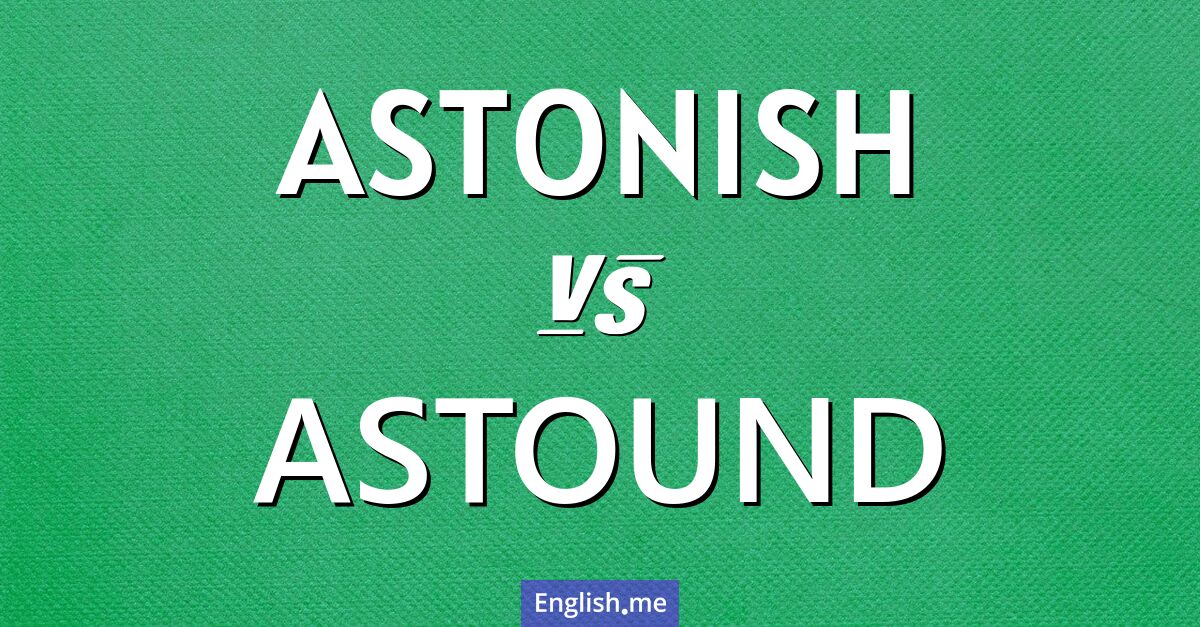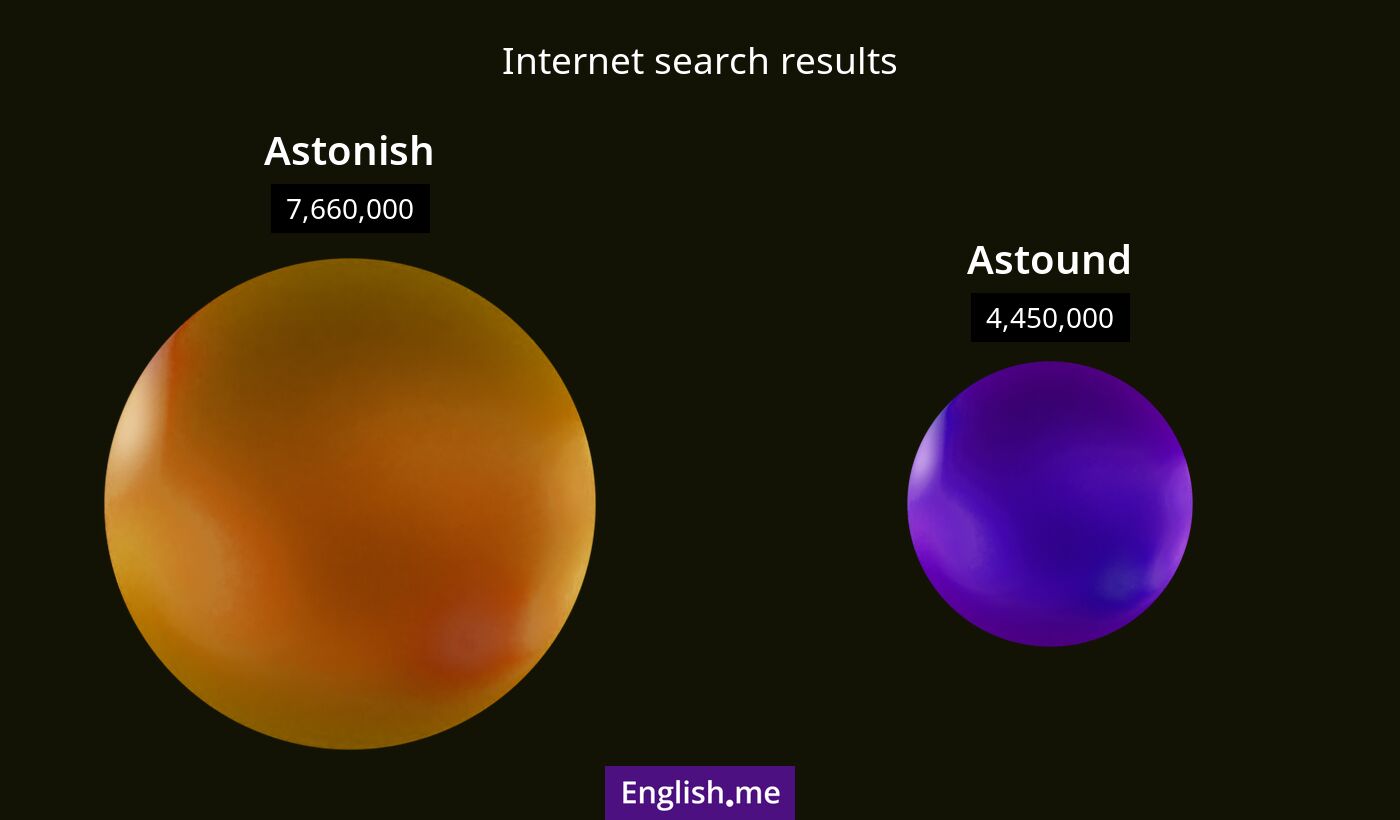"Astonish" vs. "astound": how are they different?
Reviewed and edited by  Lloyd Cooper 16/09/2025, 19:18
Lloyd Cooper 16/09/2025, 19:18
English.me team member

 What is similar?
What is similar?
Both "astonish" and "astound" are verbs that mean to greatly surprise or amaze someone. They are often used interchangeably in many contexts and convey a strong sense of wonder or shock.
 What is different?
What is different?
"Astonish" often implies a surprise that is mixed with admiration or wonder, while "astound" generally suggests a more intense, sometimes overwhelming level of shock or disbelief. "Astound" can also be used for situations where someone is left speechless or unable to react.
 Which one is more common?
Which one is more common?

 Examples of usage
Examples of usage
Astonish- The magician's tricks never fail to astonish the audience.
- Her improvement in such a short time will astonish her teachers.
- I was astonished by how quickly the team finished the project.
- The news of his recovery astounded everyone at the hospital.
- She was astounded by the breathtaking view from the mountain top.
- His ability to solve the puzzle in seconds astounded his friends.

 English
English español
español française
française italiano
italiano deutsche
deutsche 日本語
日本語 polski
polski česky
česky svenska
svenska Türkçe
Türkçe Nederlands
Nederlands